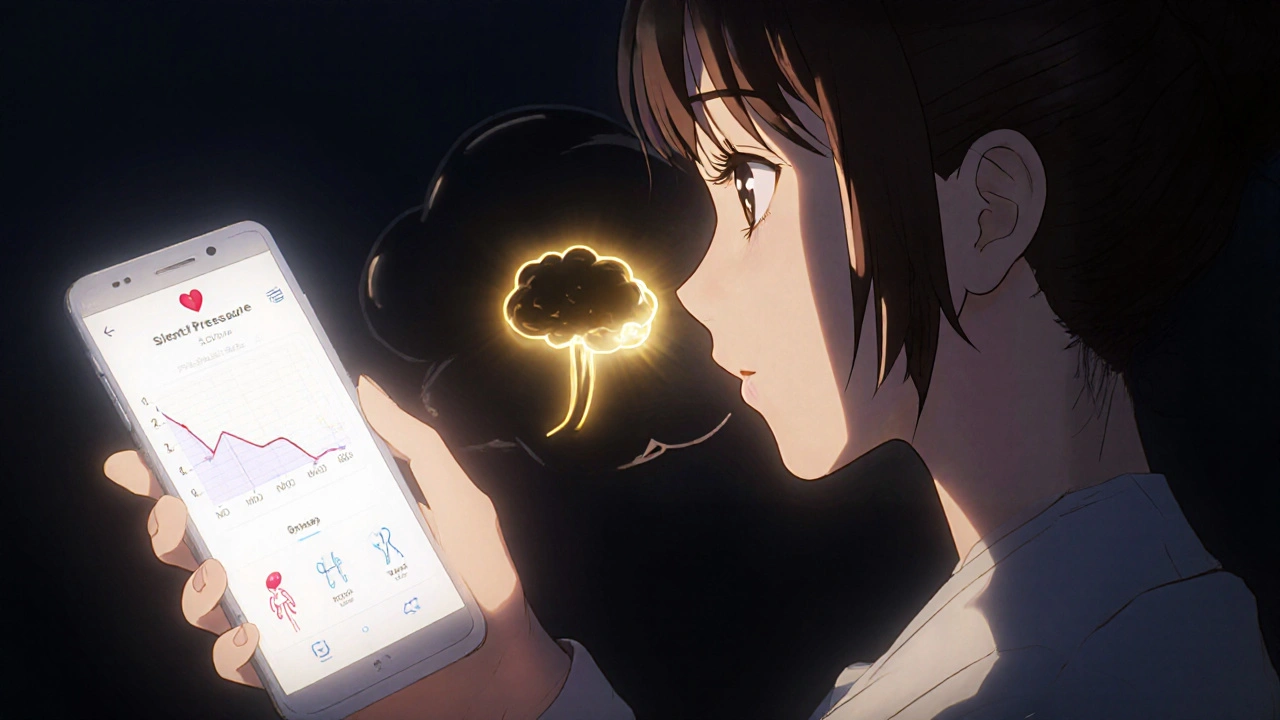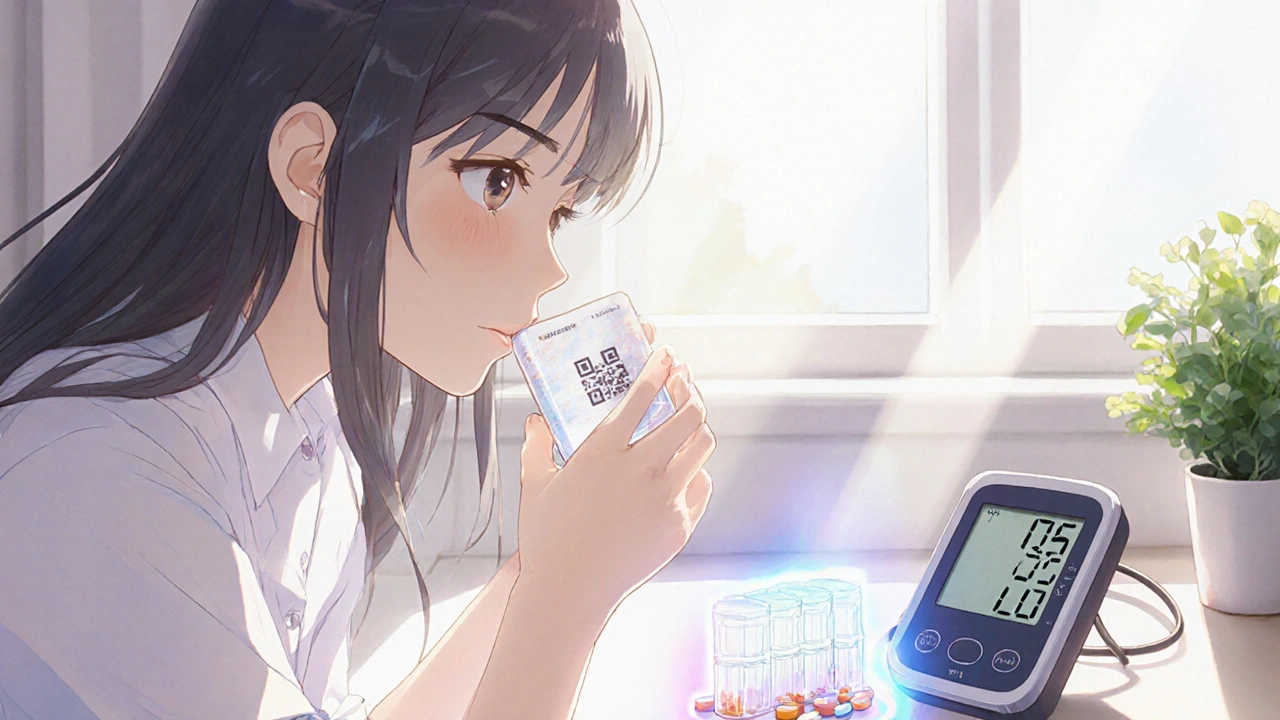High blood pressure doesn’t come with warning signs. You might feel fine, but your arteries are under constant stress. Left untreated, it can lead to heart attack, stroke, or kidney failure. That’s why millions of people take blood pressure medications every day - not because they’re sick, but because they need to stay healthy.
How Blood Pressure Medications Work
Blood pressure meds don’t just lower numbers on a screen. They target the body’s natural systems that control how hard your heart pumps and how wide your blood vessels stay. There are about ten main classes of these drugs, each with a different job. Some tell your kidneys to flush out extra salt and water. Others relax your blood vessels. Some slow your heart rate. The goal isn’t just to get the number down - it’s to protect your heart, brain, and kidneys over the long term.
Doctors don’t pick these drugs randomly. They look at your age, race, other health conditions, and even how your body reacts to certain medicines. For example, if you’re Black, you’re more likely to respond well to calcium channel blockers or diuretics than to ACE inhibitors. If you have diabetes or kidney disease, an ACE inhibitor or ARB is often the first choice because they help protect your kidneys.
Common Types of Blood Pressure Medications
Here are the most widely used classes and what they do:
- Diuretics (like hydrochlorothiazide): These are often the first drug prescribed. They help your body get rid of extra sodium and water, which reduces blood volume and lowers pressure. Simple, effective, and cheap.
- ACE inhibitors (like lisinopril): They block a chemical that narrows blood vessels. This lets blood flow more easily. They’re especially good for people with diabetes or heart failure.
- ARBs (like losartan): These work like ACE inhibitors but block the same chemical at a different point. They don’t cause the dry cough that affects about 1 in 5 people on ACE inhibitors.
- Calcium channel blockers (like amlodipine): These relax the muscles in your blood vessel walls. Dihydropyridines (amlodipine) mainly affect blood vessels. Non-dihydropyridines (verapamil) also slow heart rate - useful if you have an irregular heartbeat too.
- Beta-blockers (like metoprolol): These slow your heart rate and reduce how hard your heart pumps. They’re not usually first-line for high blood pressure alone, but they’re essential if you’ve had a heart attack or have heart failure.
- Alpha-blockers (like doxazosin): These relax blood vessels by blocking nerve signals that tighten them. Often used when other drugs don’t work or for men with enlarged prostates.
- Central agonists (like clonidine): These act on your brain to reduce nerve signals that raise blood pressure. Used less often due to side effects like drowsiness.
Most people need more than one drug to reach their target. About 70% of patients require two or more medications. That’s why combination pills - like amlodipine plus lisinopril - are so common. They simplify your routine and improve adherence.
Side Effects You Should Know
Every medication has side effects. With blood pressure drugs, some are mild, others can be serious. The key is knowing what to watch for and when to call your doctor.
- ACE inhibitors: Dry cough is the most common - annoying but not dangerous. Rarely, they cause angioedema - swelling of the face, lips, or throat. That’s an emergency.
- ARBs: Similar to ACE inhibitors but without the cough. Still carry risk of high potassium (hyperkalemia) and kidney issues, especially if you’re dehydrated or take NSAIDs.
- Diuretics: You’ll pee more, especially at first. Can cause low potassium, dizziness, or gout flare-ups. Potassium levels need checking every few months.
- Calcium channel blockers: Swollen ankles, flushing, dizziness, and sometimes gum overgrowth (gingival hyperplasia). Constipation is common with verapamil.
- Beta-blockers: Fatigue, cold hands and feet, trouble sleeping, and slowed heart rate. For diabetics, they can hide the warning signs of low blood sugar - shaky hands, fast heartbeat.
- Alpha-blockers: Dizziness when standing up (orthostatic hypotension), especially after the first dose. Start with a low dose and take it at bedtime.
Some side effects fade after a few weeks. Others don’t. If one drug makes you feel awful, don’t suffer through it. Talk to your doctor. There’s almost always another option.

Drug Interactions and Safety Risks
Blood pressure meds don’t play well with everything. Some combinations can be dangerous.
Never take an ACE inhibitor and an ARB together. It doesn’t lower blood pressure any better - but it sharply increases your risk of kidney failure and dangerously high potassium. This mistake still happens too often.
NSAIDs like ibuprofen or naproxen can reduce the effect of blood pressure meds and damage your kidneys, especially if you already have kidney issues. Use acetaminophen instead for pain relief.
Dehydration from illness, heat, or not drinking enough water can turn even safe doses of diuretics or ACE inhibitors into kidney stressors. Stay hydrated.
If you’re pregnant, many common blood pressure drugs are off-limits. ACE inhibitors, ARBs, and direct renin inhibitors can cause severe birth defects. Methyldopa and labetalol are safer choices during pregnancy.
Older adults are more sensitive to these drugs. A dose that’s fine for a 40-year-old might cause a 75-year-old to fall from dizziness. Start low, go slow.
When Medication Isn’t Enough
Medication works best when paired with lifestyle changes. No pill can undo years of poor diet, inactivity, or chronic stress.
Reducing salt intake, eating more vegetables and whole grains, losing even 5-10 pounds, and getting 30 minutes of walking most days can lower blood pressure as much as a single drug. Limit alcohol. Quit smoking. Manage stress - even meditation or deep breathing helps.
Some people have resistant hypertension - blood pressure that stays high despite three or more medications. That’s when specialists step in. They check for hidden causes like sleep apnea, kidney artery narrowing, or hormonal disorders. In rare cases, devices that stimulate nerves to lower blood pressure are being tested.

Adherence Is the Biggest Challenge
Here’s the hard truth: about half of people stop taking their blood pressure meds within a year. Why? Because they feel fine. Because they forget. Because the side effects bother them. Because the pills cost too much.
But high blood pressure doesn’t care if you feel okay. It’s silently damaging your arteries every day. Skipping doses isn’t harmless - it increases your risk of stroke and heart attack.
Here’s what helps:
- Use a pill organizer or phone reminder.
- Ask your doctor about combination pills to reduce the number of pills per day.
- Don’t be afraid to ask for cheaper generics - hydrochlorothiazide and lisinopril cost under $5 a month at many pharmacies.
- Track your blood pressure at home. Seeing your numbers improve can be powerful motivation.
What’s Next for Blood Pressure Treatment
Research is moving fast. Doctors are starting to use genetic testing to predict who will respond best to which drug. Early data suggests certain gene variants affect how people process beta-blockers and ACE inhibitors. In the next 5-10 years, your blood pressure treatment might be tailored to your DNA.
Apps that remind you to take pills and sync with home blood pressure monitors are already improving adherence by 15-20%. Digital tools are becoming part of standard care.
And the treatment goals are changing. The SPRINT trial showed that pushing systolic pressure below 120 mmHg in high-risk patients reduces heart attacks and strokes - but it also increases side effects like dizziness and kidney issues. That’s why doctors now tailor targets: 130/80 for most, but sometimes lower for younger, healthier people with no side effects.
There’s no one-size-fits-all solution. What works for your neighbor might not work for you. The right medication is the one you can take consistently, without side effects that ruin your life.
Can I stop taking blood pressure medication if my numbers are normal?
No, not without talking to your doctor. Normal blood pressure on medication means the drug is working - not that your condition is cured. Stopping suddenly can cause your pressure to spike dangerously. Some people can reduce or stop meds after major lifestyle changes, but only under medical supervision.
Which blood pressure medication has the fewest side effects?
There’s no universal answer. Thiazide diuretics like hydrochlorothiazide are generally well-tolerated and inexpensive, but they can cause low potassium or gout. ARBs like losartan avoid the dry cough of ACE inhibitors. Calcium channel blockers like amlodipine are effective but may cause swollen ankles. The best choice depends on your health history and how your body reacts.
Are generic blood pressure meds as good as brand names?
Yes. Generic versions of lisinopril, amlodipine, metoprolol, and hydrochlorothiazide are bioequivalent to brand names. They contain the same active ingredient, meet the same FDA standards, and work the same way. The only differences are in inactive ingredients (fillers, coatings), which rarely affect performance. Generics save you money without sacrificing safety or effectiveness.
Why do some blood pressure meds make me dizzy?
Dizziness often happens when blood pressure drops too quickly, especially when standing up - called orthostatic hypotension. It’s common with alpha-blockers, diuretics, and some calcium channel blockers. To reduce it, stand up slowly, stay hydrated, and avoid alcohol. If it’s severe or frequent, your dose may be too high or the drug isn’t right for you.
Can I take over-the-counter supplements with my blood pressure meds?
Some can interfere. Licorice root can raise blood pressure. St. John’s Wort can reduce the effectiveness of some drugs. Potassium supplements can be dangerous if you’re on ACE inhibitors or ARBs - they can cause deadly high potassium levels. Always tell your doctor what supplements you’re taking, even if you think they’re harmless.
What to Do Next
If you’re on blood pressure medication, make sure you’re getting your labs done - especially potassium and kidney function - at least once a year. Keep a log of your home readings. Ask your doctor if you’re on the right combination. Don’t ignore side effects. And don’t stop taking your pills just because you feel fine. High blood pressure is a silent threat. The only way to beat it is with consistency, communication, and the right plan.


Comments (8)
Barry Sanders
This post is basically a drug company brochure with footnotes. Everyone knows these meds are just band-aids on a bullet wound. You don't fix high BP by dumping chemicals into your body-you fix it by stopping junk food, quitting soda, and actually moving. But no, let's just keep prescribing pills like candy.
Chris Ashley
Bro I was on lisinopril for 6 months and it made me cough like I had lung cancer. Switched to losartan and boom-no more cough, same results. Also, side note: if you're on diuretics, drink water like it's your job. I went to the ER once because I thought I was dying from dehydration. Turns out I just forgot to drink anything after my 3pm pee marathon.
kshitij pandey
Hey everyone, I'm from India and I've been on amlodipine for 8 years now. My BP was 180/110 when I started-now it's 122/78. I walk 45 minutes every morning, eat more dal and less fried snacks, and take my pill at the same time every night. It's not magic, it's just consistency. You don't need to be perfect, just show up. Your heart will thank you. 🙏
Brittany C
It’s worth noting that the SPRINT trial’s intensive systolic target (<120 mmHg) demonstrated a 25% reduction in cardiovascular events, but at the cost of increased incidence of syncope, acute kidney injury, and hyponatremia-particularly in elderly cohorts with polypharmacy. The risk-benefit calculus must be individualized, and automated office BP measurements are now preferred over clinic readings due to white coat hypertension confounders.
Sean Evans
LOL you people are so naive. You think taking a pill makes you invincible? 🤡 I know a guy who took his meds, ate 3 Big Macs a day, and then had a stroke at 47. Your ‘lifestyle changes’ are just excuses to keep eating junk. Stop pretending you’re healthy because you swallowed a blue pill. You’re not. You’re just medicated. 🚫🍔
Anjan Patel
Let me tell you something about these meds-my uncle took 5 different pills for his BP, and guess what? He ended up in the hospital because his potassium went through the roof. The doctors didn’t even check his labs for 6 months! This whole system is broken. People are treated like numbers, not humans. And don’t get me started on how they push combination pills to make more money. It’s a racket.
Scarlett Walker
Just wanted to say-my mom started taking hydrochlorothiazide and hated the peeing all the time. She switched to a combo pill with amlodipine and now she’s actually sleeping through the night. Also, she got a cheap home monitor for $30 on Amazon and seeing her numbers drop made her actually *want* to take her meds. Small wins matter!
Hrudananda Rath
It is an incontrovertible fact that the contemporary pharmaceutical paradigm, predicated upon the mechanistic suppression of physiological parameters without addressing the foundational etiologies of metabolic dysregulation, constitutes a profound epistemological failure of modern medicine. The reliance upon pharmacological palliation-particularly in the context of diuretics and ACE inhibitors-represents not a therapeutic intervention, but a systemic abdication of preventive responsibility. One must question: is this medicine, or merely administrative convenience dressed in clinical garb?